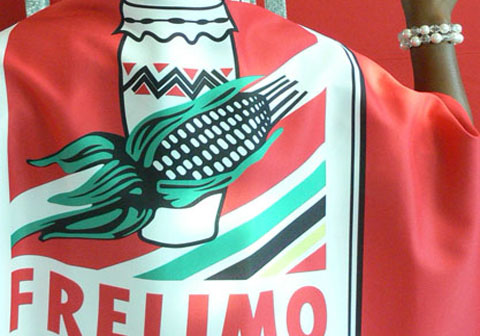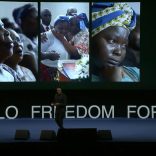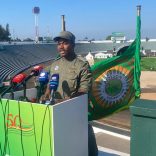Mozambique: Chapo returns to the Nguni tribe, thanks them for their support in the elections
Comment: Unexpectedly damning report changes the balance in Frelimo – Hanlon

File photo
The Commission proved to be unexpectedly powerful. A former president, five current ministers including the Prime Minister and Finance Minister, two former ministers and the former Bank of Mozambique governor gave evidence. And I consider the report to be devastating – it confirmed that the loans were illegal and unconstitutional, badly written and probably corrupt, for mainly military purposes and not fishing as claimed, and had been intentionally kept secret in the hope that no one would notice.
Response to the report has been mixed. Magazine Independente said the “Guebuza government has won the first battle in parliament”. Renamo has boycotted the whole process. The third party, the MDM, had one person on the Commission and he refused to sign the report. So this was a Frelimo dominated Commission, named by a parliament dominated by Frelimo members allied to former president Armando Guebuza. And it is true that the Commission wants the guilty to be protected from prosecution.
The Commission was chaired by Eneas Comiche, the respected former Minister of Finance and former governor of the Bank of Mozambique. From 2003 to 2008 he was a highly effective mayor of Maputo and noted for his integrity, but Frelimo (by then headed by Guebuza) did not let him stand again and replaced him with David Simango, who was more responsive to party demands. Comiche then became an MP. So Comiche is not likely to by sympathetic to Guebuza, and has the experience to investigate the secret debt. And his report is devastating because it is factual.
Precisely because it comes from inside Frelimo, the report could change the mood inside the party.
Frelimo has always been a loose coalition, with divisions according to region, gender, age, business and personal relations, which means that factions are not rigid. For more than 40 years, the guiding rule has been unity – however bitter the fights and divisions inside, no one is expelled or leaves and the party stays together at all costs. Unity helps it win elections, but the desire to stay together means that often hard choices are not made. Peace talks with Renamo are stalled because the party is divided on how to move forward. Similarly, there is a growing awareness that the economic crisis caused by the secret debt plus the on-going war is increasingly blamed on Frelimo, and that a Trump-like backlash could lead to the election of Renamo head Afonso Dhlakama as president in 2019. For many in the Frelimo leadership, this is too terrible to contemplate, so they are not thinking about it.
There appear to be three groups in the Frelimo leadership now. One is aligned to Guebuza. During his decade as head of the party and President, he put his people into key posts such as provincial (and lower level) party secretaries, parliament, the Central Committee, and the security services SISE. And in the patronage culture, his people have benefitted from the secret loans and various contracts. The Guebuza group tends to take a hard line, refusing concessions to Renamo and on the secret debt, and discouraging discussion and debate. That position was underlined in Guebuza’s evidence to the parliamentary commission in which he claimed his position as liberator of Mozambique made him unchallengeable. But the arrogance of Guebuza and António do Rosário before the Commission will play badly with some in the party.
The second group is around President Filipe Nyusi and liberation war fighter Alberto Chipande, who is the wealthiest and most powerful person in Cabo Delgado and a major backer of Nyusi. Nyusi’s recent anti-corruption speeches have attracted a certain cynicism, because as Defence Minister his area gained from military purchases. Nevertheless, this may be a way to distance himself from Guebuza, by trying to crack down on corruption at middle and lower levels. Nyusi has been quietly replacing Guebuza appointees in key positions. It is said that Nyusi wants to push harder for a deal with Dhlakama, but Guebuza is resisting.
The third is a loose group, partly of younger people but also of some of the elder statesmen, who are worried about the corruption and lack of direction in Frelimo, and they talk more about the danger of losing the next election. Comiche’s report will support this group. And former President Joaquim Chissano is playing a more active role in the party, and would at least be anti-Guebuza.
Until recently, the intractability of the divisions and problems, as well as a slowly growing climate of fear, has led to stasis, and a lack of strategizing and debate. One friend commented that the party was hibernating.
Eneas Comiche has rocked the boat. Any response will be, as always, cautious, considered, and consensual. But perhaps the mood is changing.
By Joseph Hanlon













Leave a Reply
Be the First to Comment!
You must be logged in to post a comment.
You must be logged in to post a comment.